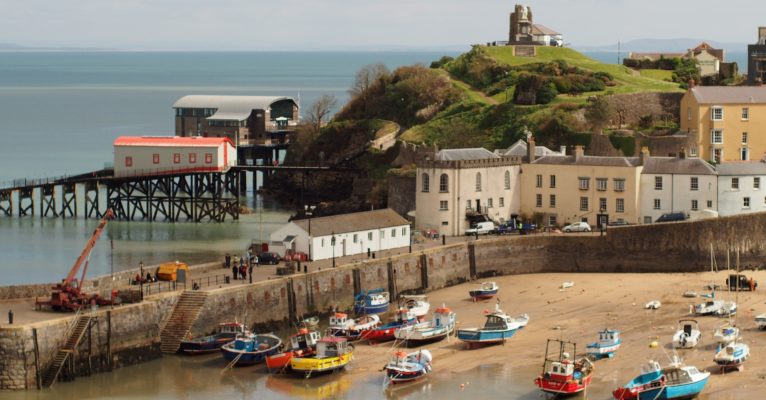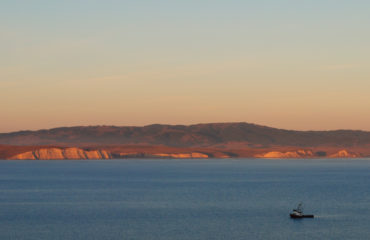The future of Welsh fisheries after Brexit

A new report for the Wales Centre for Public Policy authored by Griffin Carpenter and Chris Williams of the New Economics Foundation (NEF) and Suzannah Walmsley of ABPmer, looks at the implications of leaving the EU and the Common Fisheries Policy (CFP) for fishing opportunities in Wales. The report argues that there are three main axes of risk and reward presented by Brexit for the UK fishing fleet: access to waters; access to fishing quota; and access to markets. For Welsh fisheries, continued barrier-free access to European markets should be the first priority. Also highlighted is the need for investment in collaborative research, alongside consideration of alternative approaches to quota allocation (which historically favours large ships over small ones) and other policy options.
A probability of negative impact for Welsh fisheries
A key prediction is that Welsh fishing boats without quota, that is, fishers who catch shellfish and other non-quota species, will be worse off under nearly all Brexit scenarios. This rings alarm bells for Wales. 92% of the Welsh fleet is made up of small boats, under 10m in length, catching mainly shellfish and non-quota fish species. Two-thirds of landings by Welsh vessels by value are shellfish, of which 90% are exported to the EU and to Asia via the EU’s extended trade agreements. Processed Welsh whelks worth £5.2million per annum are exported in this way to the Korean market. The Welsh fleet is allocated less than 1% of the total UK fishing quota, because small vessels (under 10m) historically were not required to log their catch, so when quotas were introduced in 1989 only larger vessels were able to access quota thanks to their track record.
Considering the three main axes outlined above, the vast majority of Welsh vessels are too small to take advantage of exclusive access to an extended fishing area; neither do they have the right gear, or quota entitlements to take advantage of potential quota gains. Instead, they are likely to be hit hard by losing access to the single market and customs union: should they face tariffs on exports this would render their products significantly less price-competitive; moreover, any increase in delays at UK or EU ports risks sensitive fresh products spoiling before reaching market, and jeopardising supply chains.
Analysis of the economic performance of the Welsh fisheries fleet under different Brexit scenarios reveals that most Welsh vessels, fishers, and ports are likely to be ‘net losers’ from Brexit unless significant measures to ensure frictionless trade are put in place. The structure of the Welsh fleet is unique and there is a real risk of it being ‘left behind’ by the demands of larger fishing interests in the UK-EU negotiations.
…but there could be opportunities too
Yet, even in Wales, there exists the potential for significant gains should leaving the EU and the CFP be taken as a real opportunity to completely rethink the structure of the UK industry and transform what is caught, by whom, where and how. Under existing arrangements, any quota that may be gained from non-British EU boats currently fishing in UK waters, would accrue to existing quota holders – of which there are very few in Wales. However, under an alternative method of allocation, based on the proportion of fish stocks in Welsh waters, the report’s authors calculate that the Welsh fleet could lay claim to up to 15,000 tonnes of additional quota (a 2000% increase from a relatively low base, see addendum to report). Growing the industry could provide opportunities to add value to fish products, through developing processing enterprises, introducing markets and developing supply chains within Wales which should therefore provide jobs and investment in Welsh coastal communities.
Even if political agreement on such a radical shake up within the UK were achieved, taking advantage of such a new quota would however require fundamental transformation of our fishing infrastructure as well as the Welsh fleet. At present, the small number of Welsh vessels that currently fish quota species catch and land most of their product outside of Wales (90% by landed value), predominantly in other EU countries (75%). Mirroring this pattern, Wales’ biggest ports rely on landings by non-British EU vessels (Milford Haven 60% and Swansea 90% by landed value). After Brexit, what guarantee is there that UK vessels will choose to land their catch in Welsh ports? Further, fishing for new species will require Welsh fishing businesses to invest new boats and significant adaptation to gears and other equipment; it will also require upgrading, expanding and modernising port and connecting infrastructure and enhanced management and enforcement capacity.
Effective fisheries policy bridges multiple levels of governance
The Welsh fishing industry is, as it stands, relatively small economically and politically. Fisheries management is a devolved issue – but at the time of writing, it is unclear the extent to which power over fishing responsibilities will be ‘repatriated’ to the Welsh Assembly after Brexit, or withheld by UK Government.
Whatever the outcome, the Welsh Government will continue to have some levers. The report’s authors outline six levels of policy options for the management of fishing opportunities: three of these levels consider how quota are divided between states and devolved administrations and then allocated to vessels; while the other three refer to fisheries management, from international approaches to setting total fishing limits, to national management systems and post-allocation policies. The detailed policy options in the report discuss international examples of how supporting and developing fisheries in Wales might be linked to sustainable environmental, economic, social and cultural outcomes, so that the benefits are felt in Welsh ports and wider society from what is, ultimately, a public resource. The justification for these objectives are well supported in Welsh legislation, namely the Wellbeing of Future Generations Act (2015) and the Environment Act (2016).
A panel at the report launch discussed how the depth and breadth of data and scientific research required to effectively understand and manage Welsh fisheries is equivalent to that of other countries that have much larger fishing fleets. This presents a major challenge, as investment and collaboration for further research and development will be among the top priorities required to facilitate the development of a coherent, coproduced and agreed fisheries policy for Wales. What is already clear is that the fundamental aims lie in achieving a biodiverse and resilient marine environment, healthy coastal communities, sustainable fish stock and productive industries.
Mair Bell is a Senior Research Officer at the Wales Centre for Public Policy. Griffin Carpenter is a Senior Researcher at the New Economics Foundation.





The future of Welsh fisheries | Newsfeed Cymru
4th June 2018 at 10:56 am[…] This article was first published on the Brexit & Environment blog. […]